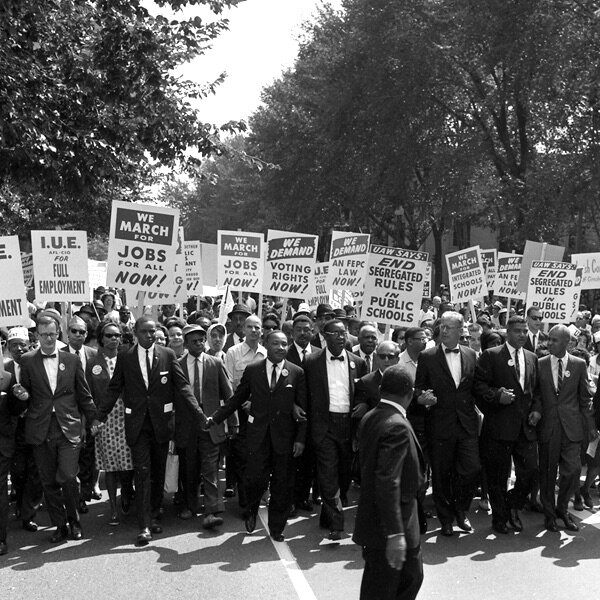Resources
Woven Teaching provides high quality and curated information, strategies, lessons, unit planning, and other resources for history teachers and those working with historical material. Our materials combine best practices, Common Core compliance, and themes of social responsibility. We partner with like-minded organizations to support teachers with quality lesson plans that have a human rights focus.
To download lesson plans or discussion guides, please sign in using the Log In button in the main menu or create a free account. All other materials on the website are available without logging in.
Subject(s): teaching tools
The Human Rights Education Implementation Toolkit is designed to help educators in all settings–formal, non-formal, and informal–implement Woven Teaching resources with their learners.
Subject(s): teaching tools
We understand that educators work in a variety of contexts and have different levels of access to technology. With this in mind, we have created this activity adaptation guide in the hopes that it may be useful to educators when adapting Woven Teaching materials to their context.
Subject(s): current events, history, social studies
What rights do we have in the workplace? And why is it important for workers to know these rights? In Strike!: Workers’ Rights & the Matchwomen of London’s East End, students have the opportunity to learn about their rights as workers, as well as an historical struggle by workers in Victorian London. They will also learn about the importance of solidarity.
Subject(s): current events, teaching tools
Published in October 2023, this brief guide offers suggestions for navigating difficult conversations about Israel and Palestine.
Subject(s): civics, history, social studies
In Liberté, Égalité, Fraternité: Citizenship & Exclusion in Revolutionary France, students explore the plight of social groups whose rights were limited or denied. In the process, they will consider who has rights in their own communities, and whether exclusion continues.
Subject(s): history, media literacy, social studies
Uncovering Misinformation: Expression, Propaganda, and Human Rights is a set of four lessons that provides teachers with resources to educate students about freedom of expression as a basic human right, misinformation, the role of the media, and propaganda. The goal is to provide opportunities for students to learn about misinformation and to develop skills to critically analyze the media that they consume.
Subject(s): current events, history, social studies
In this lesson, students will consider where responsibility lies for preventing or stopping mass atrocities and the potential challenges faced by international actors when making decisions about intervention. Students will work with a historical case study and review testimony from survivors and witnesses, addresses from U.S. presidents, and other primary source documents to provide a fuller picture of these events.
Subject(s): civics, current events
Human Rights Are for Everyone: A Guide to Teaching for Positive Change provides an opportunity for creating a vibrant and timely training program about the Universal Declaration of Human Rights for youth and adults. It provide the tools for teaching an overview of human rights ideals and an in-depth look at the UDHR. Most importantly, this guide encourages critical thinking, collaboration, and activism.
Subject(s): current events
This lesson is designed to introduce students to international human rights standards and expose students to stories of real people who have had their rights violated and have defended their rights or the rights of others. The lesson's activities allow students to explore the Universal Declaration of Human Rights and the framework it provides in the struggle for human rights around the world.
Subject(s): current events, media, teaching tools
Explore our resource pages for each individual article of the UDHR, including lessons and related news stories.
Subject(s): history, social studies
The Stages of Genocide Toolkit is designed to help teachers cover the topic of genocide in a meaningful and incisive way. Using the “Ten Stages of Genocide” framework, it provides an opportunity to explore multiple instances of mass atrocity. The Toolkit also highlights the connection between genocide and human rights.
Subject(s): history, media, social studies
This lesson provides an opportunity to analyze primary sources from the Black Panther Party, Chairman Fred Hampton, and the Federal Bureau of Investigation’s COINTELPRO operation (1956-1971), which sought to inhibit the effectiveness of Black liberation groups and other activist organizations. These activities provide students with historical context for Judas and the Black Messiah. The lesson also includes a discussion guide for the film.
Subject(s): current events, history, social studies
The process of rebuilding after widespread human rights abuses is often referred to as transitional justice. In the wake of the genocide, Rwandans embarked on their own transitional justice process. In this lesson, students will learn about the 1994 genocide against the Tutsi in Rwanda and the ongoing process of transitional justice in the small African nation.
Subject(s): history, social studies
In this activity, students examine the petition, We Charge Genocide: The Historic Petition to the United Nations for Relief from a Crime of the United States Government Against the Negro People. Through a close reading of the petition and a class discussion, students will draw connections from the past to current headlines about racial violence and police brutality in the United States.
Subject(s): current events
Inspired by the podcast Ear Hustle, Inside/Outside/Other: Mass Incarceration in the United States asks students to examine how the dehumanization of incarcerated people, both inside and outside the four walls of prison, allows this system to keep growing.
Subject(s): current events, history, social studies
Beyond the Yellow Star: Human Rights Abuses in Nazi Germany explores the development of the Universal Declaration of Human Rights in the wake of World War II and the Holocaust. It also gives students the opportunity to engage with case studies about different human rights abuses in Nazi Germany and reflect on the place of human rights in the world today.
Subject(s): civics, current events
This lesson offers students an opportunity to learn more about the experience of refugees, migrants, and asylum-seekers as well as U.S. immigration law. Additionally, misinformation about asylum-seekers and immigrant communities is clarified with facts and personal narratives.
Subject(s): history, social studies
This lesson explores the Haitian Revolution and the long-lasting consequences of colonial domination. The Haitian Revolution is a crucial event in the stury of world history, as it provides an early example of “people power” and demonstrates that no matter how overwhelming the oppression, liberation is possible.
Subject(s): current events, history, media, social studies
This discussion guide was created for use with Ava DuVernay's Netflix limited series, When They See Us, which explores systemic and institutional racism in the U.S. through the real story of the Central Park Five, five Black and Latinx youth who were falsely accused, tried, and imprisoned for the 1989 attack of a white female jogger.
Subject(s): teaching tools
Key terms related to migration and refugees
Subject(s): teaching tools
Key terms related to genocide and mass atrocity
Subject(s): teaching tools
Key terms related to civil and political rights
Subject(s): teaching tools
Considerations for teaching ethically and effectively about genocide and mass atrocity
Subject(s): teaching tools
Considerations for teaching ethically and effectively about migration and refugees
Subject(s): teaching tools
Considerations for teaching ethically and effectively about racism and xenophobia
Subject(s): teaching tools
A short discussion activity about the definition of genocide































Subject(s): civics, history, social studies, current events
Based on the framework provided by Timothy Snyder in On Tyranny: Twenty Lessons from the Twentieth Century, Defending Democracy offers teachers a suite of 15 lessons to support students to be promoters and defenders of democracy and human rights.